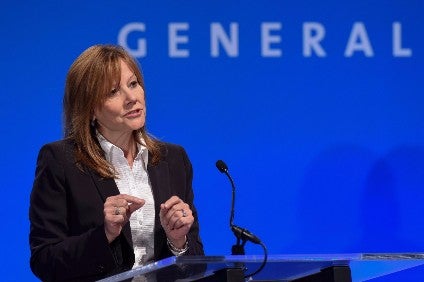Earlier this week, General Motors confirmed it was withdrawing its support from the Trump administration’s efforts to restrict California’s ability to set its own more stringent emissions laws.
The decision, announced in a letter to environmental groups, comes as the White House General Services Administration (GSA) finally acknowledged President-Elect Joe Biden as the apparent winner of the 2020 presidential election, signalling a return to stricter US emissions standards, which the outgoing administration had sought to overturn.
California, via its Air Resources Board (CARB), has traditionally set stricter emissions rules than the rest of the US, with 13 other states including New York, Colorado and Pennsylvania also adopting the same standards. Considering US automakers and importers must meet these standards to sell cars in many states including California – the largest state by population – they have become the de facto rules for the nation as a whole. California’s stricter rules do inflate a vehicle’s purchase price due to the additional cost of the pollution controls such as hybrid systems, selective catalytic reduction, stop-start systems, or particulate filters needed to bring exhaust emissions within acceptable levels.
US automakers were initially opposed to the Trump Administration’s plan to roll back these requirements because it would remove a competitive driver that kept them operating on a mostly equivalent basis to European and Asian automakers, making it easier to export vehicles to these markets. In addition, stricter standards formed the justification for large-scale investment into electric vehicles – the sales of which automakers now depend on to generate a return from that investment.
However, several OEMs including GM then switched their stance to support the legal challenge, stating that it would provide “vehicle manufacturers with the certainty that states cannot interfere with federal fuel economy standards”.
US emissions standards are unlikely to become more lenient. This will be heralded as good news by manufacturers of emissions control equipment and electrification components, the demand for which is likely to remain high for the foreseeable future.
Considering GM and others’ previous support for the legal challenge was given under the assumption that the Trump administration would win a second term, the news of President-Elect Biden’s victory has now changed the political landscape. The Biden team had made environmental protection a core tenet of its election pledges and most observers expect the incoming administration to uphold Obama-era stringent fuel economy and emissions requirements along with supporting the industry and vehicle-buying public on its way to an electrified vehicle fleet.
Mary Barra, GM’s CEO said “the ambitious electrification goals of the president-elect, California, and General Motors are aligned, to address climate change by drastically reducing automobile emissions”. The company has already committed a great deal of capital to the development of EVs and is preparing to launch a range of new models based around its new Ultium battery co-developed with LG Chem. Ahead of the letter, GM has said it will increase spending on EVs and autonomous vehicles by 35% above its existing commitments.
The decision by GM to withdraw its weight from the legal challenge to California’s rule-setting privileges, as well as inviting other automakers that had previously voiced support such as Toyota and FCA to follow its lead, indicates that US emissions standards are unlikely to become more lenient. This will be heralded as good news by manufacturers of emissions control equipment and electrification components, the demand for which is likely to remain high for the foreseeable future.







